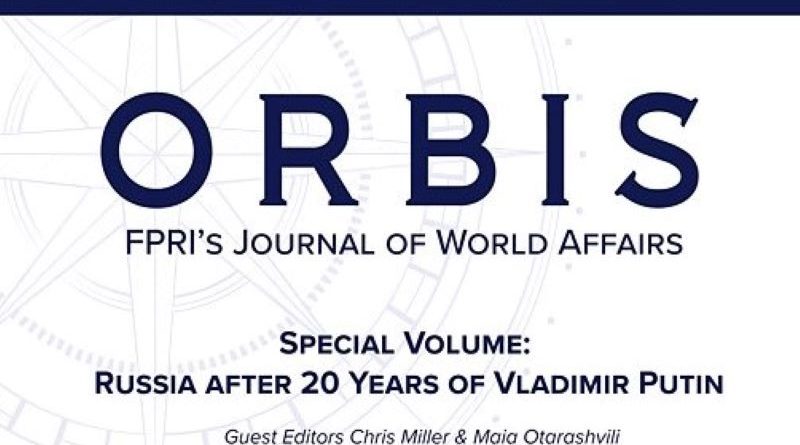Russia after 20 Years of Vladimir Putin.
By Chris Miller, Assistant Professor of International History at The Fletcher School of Law and Diplomacy at Tufts University
Professor Chris Miller wrote an article and served as a guest editor for a special Summer 2020 volume of Orbis, the Foreign Policy Research Institute’s Journal of World Affairs, on “Russia After 20 Years of Vladimir Putin.”
Welcome to the special summer issue of Orbis, dedicated to examining the consequences of 20 years of Vladimir Putin’s time in power as the Russian Federation’s ruler. May 2020 marked the two-decade anniversary of Putin’s ascension to power as the leader of Russia, making him the longest-serving Russian leader since Joseph Stalin. As Russia enters the third decade of the Putin system, political and economic stagnation loom large. Once the guarantor of Russia’s economic prosperity and international fame, Putin’s Kremlin now seems stale, devoid of new ideas or new faces. In foreign policy, Russia is hyperactive on the world stage, but is isolated from the West and faces ongoing sanctions. COVID-19 poses a new set of problems that the Kremlin will struggle to address.
“The M.P. for Russia”: Olga Novikova, William Gladstone, and the Crisis of 1878
In 1878, the United Kingdom and Russia stood on the brink of war, as they clashed over the Straits of Bosporus, the balance of power in the Balkans, and the intersection of their empires on the Afghan frontier. Yet, the crisis was not just a matter of foreign policy; it inspired bitter debates about identity and loyalty at home. In Britain, public relationships with Russian citizens brought accusations of treason. British politicians conducted secret liaisons with the Russian ambassador. At the center of the scandals stood Olga Novikova, a well-connected aristocrat, nationalist activist, and friend of influential journalists and Liberal Party leaders.
Click the above links to read more.

